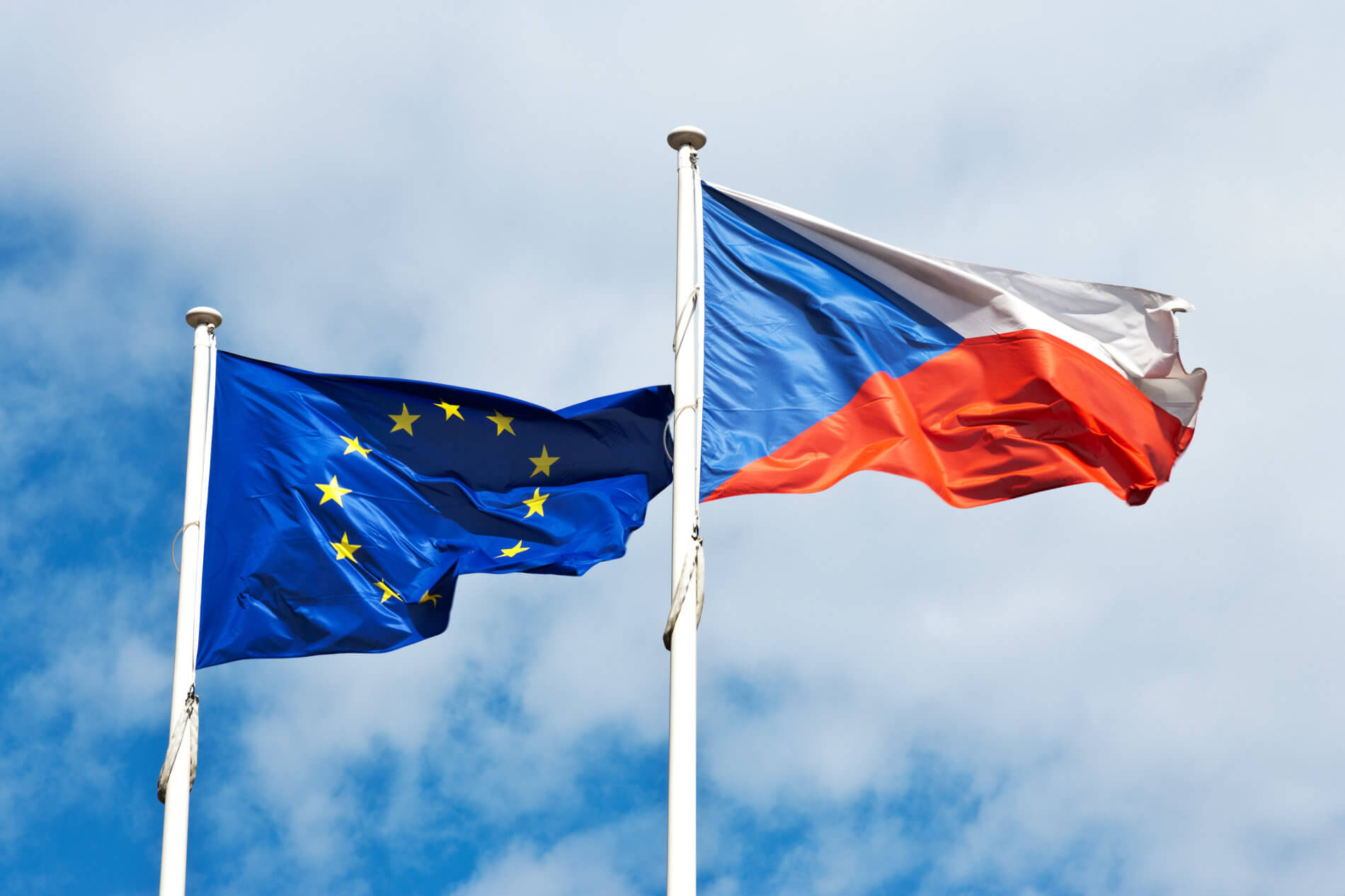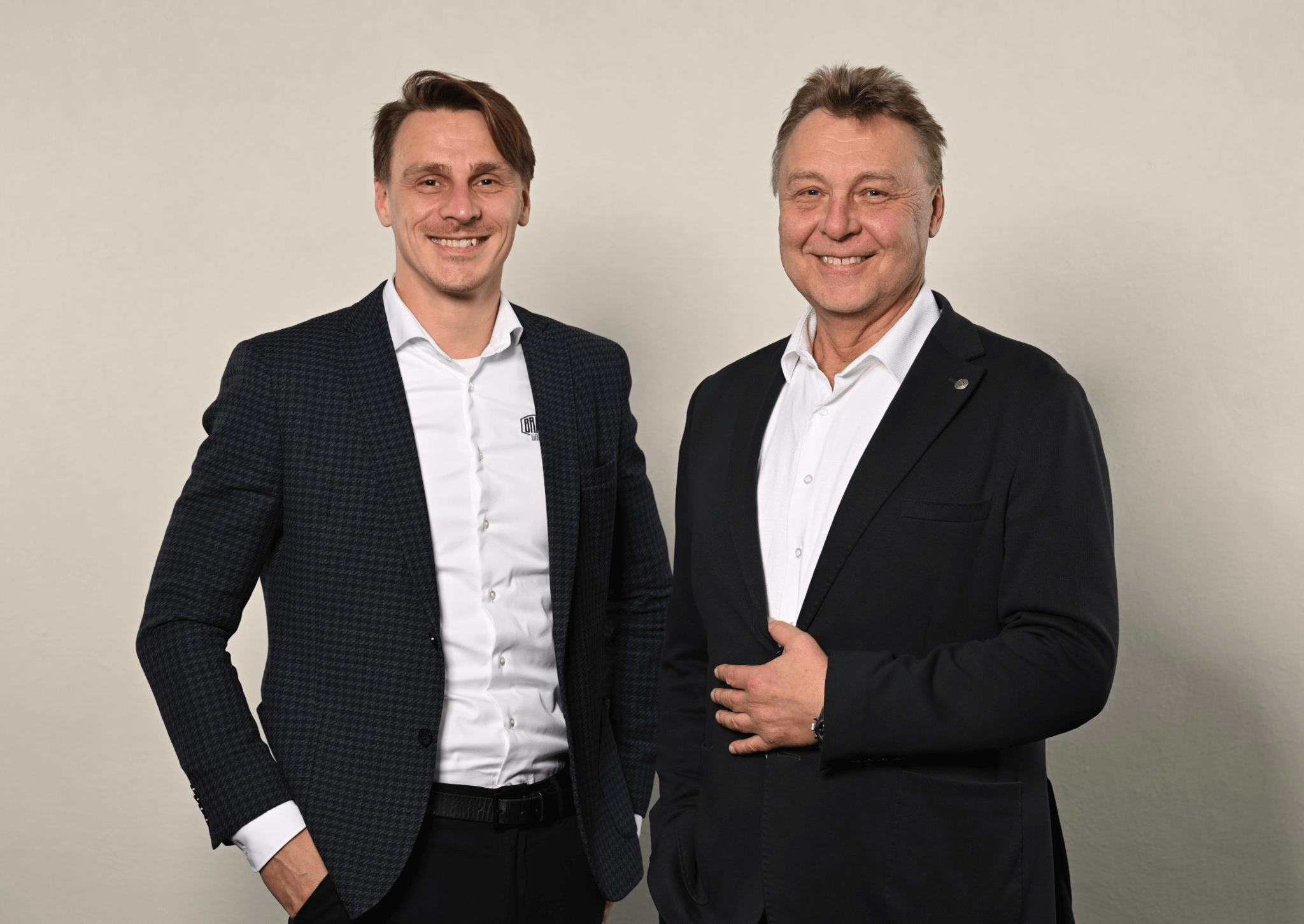Europe is losing competitiveness and one of the strongest pillars of its economy, the automotive industry, is being eroded by over-regulation, expensive inputs and the absence of a long-term industrial policy. This was the subject of a debate between managers of automotive companies, economists working in the automotive sector and representatives of state organisations and professional associations at a debate in April, organised by ČTK Connect in cooperation with the European Parliament on the occasion of the 20th anniversary of the Czech Republic’s membership of the European Union and in the context of the European Parliament elections. Here is a selection of the most interesting highlights.
The European Union has focused much of its efforts to achieve climate neutrality by 2050 on car manufacturers. Although the Green Deal, a set of policy initiatives designed to set the EU on the path to a green transformation, affects all sectors of the economy, it is the automotive sector that has been placed under strict restrictions on what cars it can produce in the future and under what conditions. One of the most debated dates is 2035, when cars with internal combustion engines are to cease to be sold on the European continent. In 2026, it should be decided whether this is an unrealistic project and whether the brakes need to be put on.
“The automotive industry provides 13 million direct and indirect jobs in Europe, contributes seven percent of the EU’s gross domestic product and is a leader in innovation.”
The wish father of the idea
The automotive industry in the Czech Republic has been doing well in the first months of this year and manufacturers in other European countries are not having any problems with production at the moment either. However, new car registrations in the EU fell in March after two months of growth and the mood in the sector is not optimistic. Electric cars, which are supposed to be the future, are not selling as well as European lawmakers thought they would, and overall it is becoming increasingly clear that the targets set by the European Commission – and agreed by member states – are not quite in line with what the continent needs to be competitive in the long term. The increasing volume of European regulation is making it more difficult for companies to do business in the sector, and in the Czech Republic the situation may be even more difficult in the long term than in other European countries.
Participants in the discussion organised by CTK more or less agree on one thing: the Green Deal needs a fix. What they agree on 100% is the need to first analyse what the planned targets will mean for the EU economy. This is missing.
 “We need an analysis based on facts, not on some ideological assumptions,” says Pavel Juříček, owner and chairman of BRANO Group, a manufacturer of automotive components (door locks, lifting devices, shock absorbers, pedal systems). Some requirements should be omitted altogether, he says, such as ESG.
“We need an analysis based on facts, not on some ideological assumptions,” says Pavel Juříček, owner and chairman of BRANO Group, a manufacturer of automotive components (door locks, lifting devices, shock absorbers, pedal systems). Some requirements should be omitted altogether, he says, such as ESG.
 “The main thing is to see what the current situation looks like. What was decided some five or ten years ago was decided on the basis of certain facts and assumptions, now we have hard data and it shows that it was wishful thinking,” said Robert Kiml, vice president for production at Toyota Motor Manufacturing Czech Republic and a member of the board of directors of the Association of Automobile Manufacturers.
“The main thing is to see what the current situation looks like. What was decided some five or ten years ago was decided on the basis of certain facts and assumptions, now we have hard data and it shows that it was wishful thinking,” said Robert Kiml, vice president for production at Toyota Motor Manufacturing Czech Republic and a member of the board of directors of the Association of Automobile Manufacturers.
 Another participant in the debate, Zbyšek Sochor, President of the Confederation of Employers’ and Business Associations of the Czech Republic, confirmed the opinion of the previous speakers: ‘The Green Agreement should be adjusted in the sense that it should correspond to the technical and technological possibilities that are currently known or can be expected to be available in the foreseeable future. The second important thing is that the Green Deal should be adapted to the financial possibilities of the EU.”
Another participant in the debate, Zbyšek Sochor, President of the Confederation of Employers’ and Business Associations of the Czech Republic, confirmed the opinion of the previous speakers: ‘The Green Agreement should be adjusted in the sense that it should correspond to the technical and technological possibilities that are currently known or can be expected to be available in the foreseeable future. The second important thing is that the Green Deal should be adapted to the financial possibilities of the EU.”
Same conditions
 “None of the other major markets that we consider as global competitors have conditions set as strictly as we do, so I don’t think Europe can afford it,” says Petr Knap, EY’s automotive expert, adding that the discussions around the Euro 7 standard have already shown a completely one-sided view, where only the environmental and health aspects were accepted without taking into account social aspects and the impact on society as a whole. It is to industry, he says, that we owe the fact that Europe is rich and that we have all been able to get used to a high standard of living. “But it is not free. The EU is still a relatively important player, with 16 or 17 per cent of global trade, but the downward trend is frightening. And we’ve actually accelerated it now.” Peter Knap also calls for a thorough analysis of the impact of the Green Deal’s goals.
“None of the other major markets that we consider as global competitors have conditions set as strictly as we do, so I don’t think Europe can afford it,” says Petr Knap, EY’s automotive expert, adding that the discussions around the Euro 7 standard have already shown a completely one-sided view, where only the environmental and health aspects were accepted without taking into account social aspects and the impact on society as a whole. It is to industry, he says, that we owe the fact that Europe is rich and that we have all been able to get used to a high standard of living. “But it is not free. The EU is still a relatively important player, with 16 or 17 per cent of global trade, but the downward trend is frightening. And we’ve actually accelerated it now.” Peter Knap also calls for a thorough analysis of the impact of the Green Deal’s goals.

However, analysis and revision does not necessarily mean that the EU has to abandon its objectives. As Petr Michník, head of the administrative subdivision of Hyundai Motor Manufacturing Czech, says: “A reassessment is definitely in order. However, if we were talking about postponing the deadlines, I am a little bit afraid that it would mean a certain permission, I would say laziness. Our competitors are already counting on 2035, and they are also counting on importing cars to Europe in the quantities that will be needed. So we should concentrate on creating the conditions for European industry to be able to meet the target and to fight the competition.” He stresses that this is not about competitiveness in terms of products, but competitiveness in terms of the conditions under which they are produced.
Robert Kiml, with exaggeration, mentions another possible way to preserve European competitiveness: that the EU agrees with other regions to set the same rules of the game. Which is probably not in the EU’s power.
What the customer wants
It is not only the representatives of automobile companies who say that they have been warning about the potential problems that will be brought by strict regulation for several years. “Nobody listened to us, there was a green euphoria, and we got to a point where the ‘paper’ did not quite match the reality. The customer is not where the EU wants him to be,” says Robert Kiml, referring to the fact that there is not as much interest in electric cars as the EU projected. “The customer is willing to believe in CO2 emissions and the need to protect the environment, but only to the extent that it starts to interfere with his standard of living.”
Petr Knap takes the same view: “All this pressure has been senseless – let’s support the manufacturers and the customers will somehow adapt, they will eventually buy the cars. The customer was simply forgotten. “
According to Petr Michnik, the trend towards an emission-free future, including electromobility, is clearly set and there are good intentions behind it. “However, I feel that the current set-up is more such that other countries are taking advantage of it, those that have been able to jump on the trend faster and more efficiently.”
China is not Japan
Pavel Juříček adds a concrete example of Chinese car companies, which, according to him, are growing thanks to the EU: “We have handed them business on a golden platter. They didn’t know how to use combustion engines. We de facto told them: do electromobility, because Europe is going the way of electromobility.” And let us add that China has taken full advantage of this.
Japanese and Korean car companies have come to Europe in the past, but as Petr Michnik says, it is important to remember that the situation was completely different then. “The first difference is that the Japanese and Korean car companies came to Europe with the same product, which had been produced here for a long time and had a lot of experience with it. Now it’s something completely new for everybody, everybody has the same starting line and it’s much easier to get a competitive advantage here. The second difference is that Japan and South Korea are countries with normal market economies. To do that, you have to remember the size of China. Of course, there are limitations in logistics, the need to create a distribution network and so on. But who else but China is capable of handling all this? I mean, the warning today is much greater than in the case of Japanese and Korean carmakers.”
The European Commission is currently investigating Chinese electric car manufacturers to see if they are receiving state support and then have an unfair price advantage over their European competitors. If this is confirmed, it will be able to impose additional tariffs on China. At least, that is the intention so far. There was no unequivocal support for this course of action at the discussion.
On the contrary, Petr Knap pointed out that, although it may not look like it from Europe, there is “brutal competition” on the Chinese market. “We only see the twelve or fifteen biggest car companies, but in reality there are many times more, and only a few of them are making money. But their rate of innovation is two or three times faster than traditional carmakers.”
Europe on the descent

The economist Petr Zahradník, a member of NERV, brought concise data on how the economies of Europe, the USA and China are doing to the debate: “From a global perspective, Europe is losing performance, it is clearly the slowest of all the centres of the global economy. During the 20-year period that the Czech Republic has been in the EU, the Asian economy has grown at an average of almost five per cent a year, the US economy at 3.7 per cent and the EU economy at a paltry two per cent. “
“Looking specifically at China alone, around the time we joined the EU, China’s share of GDP in the global economy was ten per cent. Today it is about a quarter, about the same as the share of the US economy – which coincidentally was the same in 2004. The share of the EU economy has fallen from 27 per cent to the current 17 per cent. This is essentially the most significant drop in weight in global economic competition,” said Petr Zahradník.
Pavel Juříček, who, as he says, sees no potential in Europe, has a lot of experience from China, but rather relies on the USA and China. China, he says, has been successful not because of its low costs, but because it has managed to secure resources – especially for electromobility – in Africa and South America, among other places. “Human labour is no longer cheap in China, management is even more expensive than in the Czech Republic. Their advantage is in resources, in the way they can work with them, and in less regulation.”
The three pillars
According to Petr Knap, it is possible to see the main barriers to the development of the European industry, not only the automotive industry, in three areas. The first and most important is energy, the second is the already mentioned (lack of) sufficient resources and raw materials, and the third is the labour market.
Pavel Juříček sees it similarly, but formulates it a bit more dramatically: “If you read, for example, our famous Egyptologist Mirek Bárta, you will learn that all societies have perished because of these things: overregulation, lack of resources, laziness of the population and deterioration of the educational structure. And we are already in that process.”
The fact is that energy is a basic requirement for industry to exist. Uncertainty about energy supply and price is a problem for all businesses, but of course many times more so for energy-intensive ones. “If we are talking about several times the price in Europe compared to our competitors elsewhere, we will be wiped off the map,” says Petr Knap.
Pavel Juříček cites specific figures from his companies, “In January, energy cost us between €161 and €288 per MWh, while in China I pay €80, in Turkey it is €60, in Morocco €80 and in the USA $40.” It should be added that when it comes to energy prices, the Czech Republic is a sad winner even within the EU.
Zbyšek Sochor says that when it comes to energy, the first thing that should be done is to reform the market for emission allowances.
The level of education and the related labour market are also a frequent target of criticism, both at European and especially Czech level. Pavel Juříček assesses the educational level of the workforce as very low and the human resources as “poor”. He says that companies must educate their employees themselves, otherwise they would not be able to function at all. The poor level of education, he says, blocks the potential for innovation and technological and design development. “We cannot get to higher added value with a poorly educated workforce,” confirms Robert Kiml, who also points to the poor labour law in the Czech Republic.

On 1 May 2024, the Czech Republic celebrates exactly 20 years since joining the European Union. | Photo: Shutterstock
How to survive and not lose
The debate on the automotive industry and Europe’s competitiveness showed that the automotive sector is not crying out for subsidies and similar financial support. Robert Kiml, Petr Michnik and Pavel Juříček agree that no subsidies are a good option. Instead, the BRANA boss would welcome support in the form of, for example, bank loan guarantees for certain innovative projects – as he received when he built a liquefied hydrogen plant in the United States.
This is also the way Petr Zahradník likes it: “A subsidy is a short-term, immediate demand stimulus, but its effect evaporates very quickly. The funds should be directed towards the supply side of the economy. For this, financial instruments are much better suited than subsidy redistribution, because the recipient is obliged to return the funds in some way.”
The participants in the discussion are also unanimous in the view that Europe should not artificially cultivate “champions”, i.e. support selected companies in certain sectors that have the potential to become strong on a global scale. However, the representatives of the car industry would welcome support in the form of creating the conditions for the sector to function – and survive – at all. And for the “champions” themselves to grow up in them.
Creating an industrial strategy is a priority. As Petr Knap says: “Industry needs long-term, predictable development.” This includes a review of the current EU legislation and the alignment of climate targets with the need to remain competitive.
Czech search
A part of the discussion was devoted specifically to Czech conditions and Czech competitiveness. According to Petr Zahradník, the Czech Republic has lost its vision in the last two or three years and is now hesitantly searching for it. “If we look at the statistics of economic performance, the best period – after the previous economic and financial crisis – ended sometime in 2020. We are stuck in a kind of shallow water.”
The problem, he said, is not a lack of investment; on the contrary, it represents 26-27 percent of GDP, one of the highest figures in the European Union.
Last June, the Government of the Czech Republic decided to establish the Committee for Strategic Investments, the aim of which is to coordinate and prepare conditions for the effective implementation of strategic investments in the areas of transport infrastructure, housing, energy, education, science and research. There is not much information available on its work and results.

According to Eduard Muřický, the chief director of the Industry and Construction Section of the Ministry of Industry and Trade, at least the group dealing with raw materials, of which he is a member, is working on its tasks. “They have been involved in the amendment of the linear law, which, for example, introduces the concept of expropriation for the extraction of raw materials,” says the director. In this context, he cites the lithium mining project, a strategic raw material that has been discussed for several years. “I believe that it will go ahead and be mined here,” he says. The recently adopted Critical Raw Materials Act, a law at European level that should speed up permitting processes, should also bring simplification to similar projects.
Eduard Muřický stresses that his ministry is committed to simplifying things when it comes to the business environment in the Czech Republic. “But I will not hide the fact that it is difficult, because not only at the Czech level, but also at the European level, new and new regulations are being created and old ones are not being abolished.”
Long live bureaucracy
EU regulations based mainly on the Green Deal and other EU legislative acts, together with Czech laws and decrees, entail the obligation to adapt the behaviour of people and companies to the new regulations. When it comes to business, there is another way to look at it. Petr Michník from Hyundai put it well with a bit of exaggeration: “The legislation we have to deal with and all the things we have to evaluate and deal with are reaching such an amount that car production itself is slowly becoming a minority of our operations.”
Contact
Next articles and interviews
Next articles and interviews
+ Show

 “We need an analysis based on facts, not on some ideological assumptions,” says Pavel Juříček, owner and chairman of BRANO Group, a manufacturer of automotive components (door locks, lifting devices, shock absorbers, pedal systems). Some requirements should be omitted altogether, he says, such as ESG.
“We need an analysis based on facts, not on some ideological assumptions,” says Pavel Juříček, owner and chairman of BRANO Group, a manufacturer of automotive components (door locks, lifting devices, shock absorbers, pedal systems). Some requirements should be omitted altogether, he says, such as ESG. “The main thing is to see what the current situation looks like. What was decided some five or ten years ago was decided on the basis of certain facts and assumptions, now we have hard data and it shows that it was wishful thinking,” said Robert Kiml, vice president for production at Toyota Motor Manufacturing Czech Republic and a member of the board of directors of the Association of Automobile Manufacturers.
“The main thing is to see what the current situation looks like. What was decided some five or ten years ago was decided on the basis of certain facts and assumptions, now we have hard data and it shows that it was wishful thinking,” said Robert Kiml, vice president for production at Toyota Motor Manufacturing Czech Republic and a member of the board of directors of the Association of Automobile Manufacturers. Another participant in the debate, Zbyšek Sochor, President of the Confederation of Employers’ and Business Associations of the Czech Republic, confirmed the opinion of the previous speakers: ‘The Green Agreement should be adjusted in the sense that it should correspond to the technical and technological possibilities that are currently known or can be expected to be available in the foreseeable future. The second important thing is that the Green Deal should be adapted to the financial possibilities of the EU.”
Another participant in the debate, Zbyšek Sochor, President of the Confederation of Employers’ and Business Associations of the Czech Republic, confirmed the opinion of the previous speakers: ‘The Green Agreement should be adjusted in the sense that it should correspond to the technical and technological possibilities that are currently known or can be expected to be available in the foreseeable future. The second important thing is that the Green Deal should be adapted to the financial possibilities of the EU.” “None of the other major markets that we consider as global competitors have conditions set as strictly as we do, so I don’t think Europe can afford it,” says Petr Knap, EY’s automotive expert, adding that the discussions around the Euro 7 standard have already shown a completely one-sided view, where only the environmental and health aspects were accepted without taking into account social aspects and the impact on society as a whole. It is to industry, he says, that we owe the fact that Europe is rich and that we have all been able to get used to a high standard of living. “But it is not free. The EU is still a relatively important player, with 16 or 17 per cent of global trade, but the downward trend is frightening. And we’ve actually accelerated it now.” Peter Knap also calls for a thorough analysis of the impact of the Green Deal’s goals.
“None of the other major markets that we consider as global competitors have conditions set as strictly as we do, so I don’t think Europe can afford it,” says Petr Knap, EY’s automotive expert, adding that the discussions around the Euro 7 standard have already shown a completely one-sided view, where only the environmental and health aspects were accepted without taking into account social aspects and the impact on society as a whole. It is to industry, he says, that we owe the fact that Europe is rich and that we have all been able to get used to a high standard of living. “But it is not free. The EU is still a relatively important player, with 16 or 17 per cent of global trade, but the downward trend is frightening. And we’ve actually accelerated it now.” Peter Knap also calls for a thorough analysis of the impact of the Green Deal’s goals.










